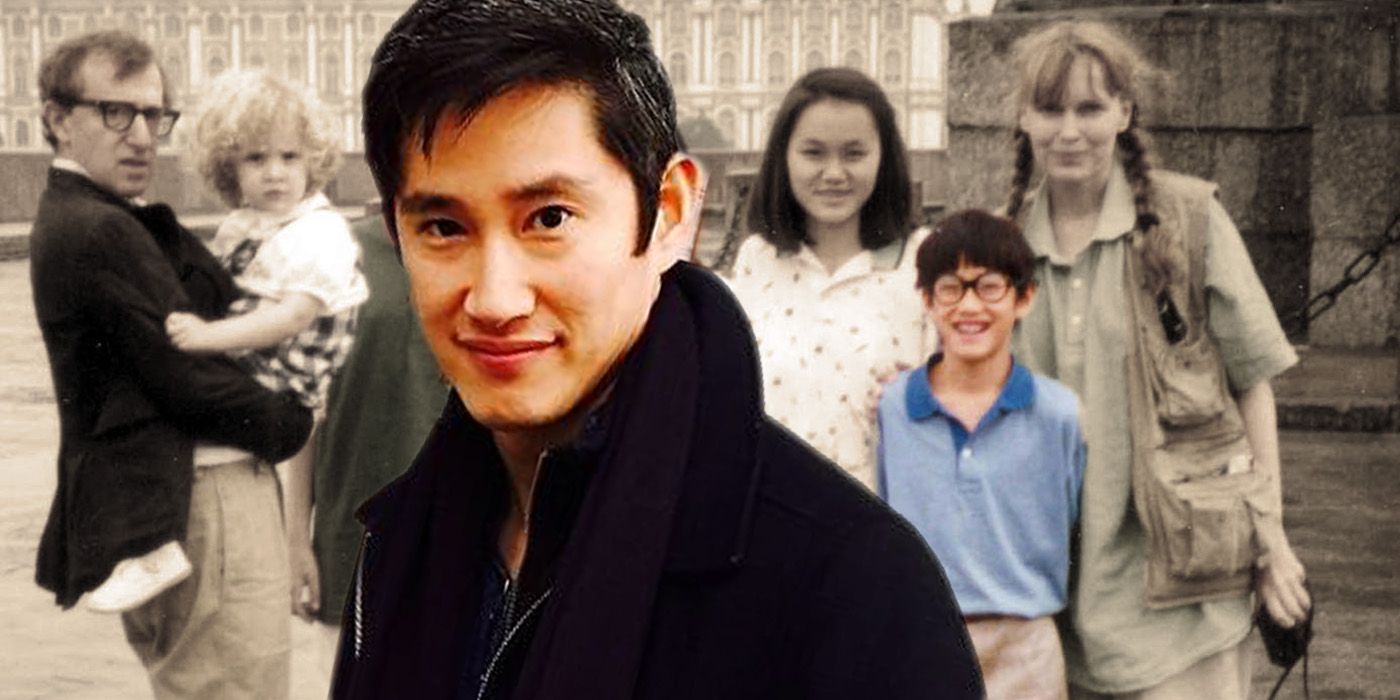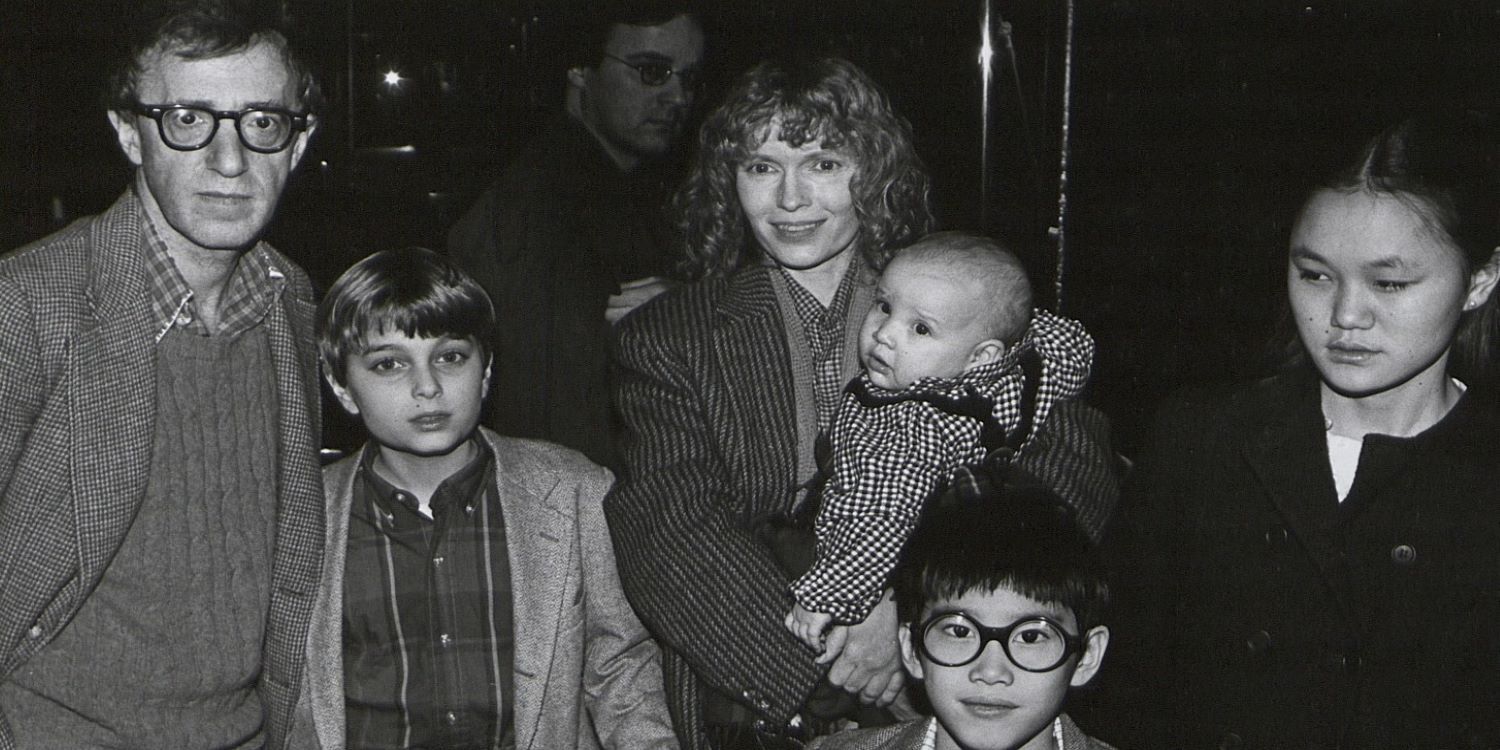
The new documentary Allen V. Farrow is densely packed with different people and perspectives, but one story that ought to be included (but isn’t) is that of Moses Farrow. The piece centers around the voices of actress Mia Farrow and her daughter Dylan, who’s now 35 years old. When Mia adopted her, she was in a long-term partnership with acclaimed actor/writer/director Woody Allen. As he grew closer to the children in the large, blended family of both adopted and biological children, the Hollywood giant eventually even became the adoptive father of both Dylan and her brother Moses.
In 1992, Dylan, who was 7 years old at the time, alleged that Allen had sexually abused her. The accusations were investigated, but the case was eventually dropped due to a lack of credible evidence, though Mia Farrow, and later Dylan, continued to make accusations over the years. Allen has always denied these allegations. Allen V. Farrow, released on HBO Max, gives an intimate window into the family’s past via photos, home videos, and interviews, as well as what different family members and close friends recall from the childrens’ formative years. Allen’s perspective is mostly included through the recorded reading for the audiobook version of his 2020 memoir Apropos of Nothing. The docuseries paints a damning picture of Allen’s relationship with Dylan and the trauma she has endured. But, despite all of this input from various sources, it seems that Moses, a crucial family voice, isn’t featured.
Though he’s mostly avoided the limelight — and initially backed his mother’s claims — Moses Farrow began publicly defending his father against the allegations in 2014. In 2018, he even penned a lengthy, vulnerable, and chilling blog post that vouched for his father’s innocence. It also painted a very different picture of growing up with his mother Mia Farrow than the one that’s commonly portrayed and accepted in the wake of Dylan’s accusations and the exposure of Allen’s romantic relationship with Soon-Yi (Mia’s adoptive daughter who was college-aged at the time they began dating). According to Moses, Mia was the abusive parent, causing him to grow up in fear while she routinely “brainwashed” the children, which he says extended to demonizing Allen. He further implies that siblings of his who have died from suicide and drug-related issues were prompted down their paths of despair by the darkness instilled during their early years in the Farrow household.

Allen V. Farrow episode 1 mentions Moses Farrow, but it seems unlikely that his perspective will be explored further. This is due partially to Moses having declined requests to participate [via The Atlantic]. In order for the HBO documentary series to appear objective, however, it needs to include every voice in the long history of this scandal. Moses alleged that Mia actually coached young, unknowing Dylan into accusing her father of abuse, and he believes that though his mother seemingly combats and confronts Hollywood-protected injustice, she has “her own darkness,” and acknowledges what he believes to be a history of child molestation within her family.
Moses has also challenged the details of Dylan’s accusations: She’s been quoted as recounting a heinous incident in the attic of the family’s Connecticut home, where she says Allen assaulted her while she was playing with an electric toy train set. Yet, Moses claims that not only was there no train set in the attic but that the area was an “unfinished crawl space” with “exposed nails and floorboards,” and that such an event couldn’t have happened there. He wonders if Dylan was told to add such a specific detail to enhance the story’s seeming veracity. Although this doesn’t disprove the allegations of assault, it is a pertinent counterpoint that should be included in the docuseries.
It’s a phenomenal achievement that society has entered into an era of healing and correction — most notably with the likes of the #MeToo movement — where issues such as abuse and long-term effects on victims are openly discussed. Other TV documentary series have challenged the powerful celebrity elite who have been able to shield themselves from repercussions using their fame and wealth, such as Finding Neverland, Surviving R. Kelly, and more recently Framing Britney Spears. For Allen V. Farrow to be as effective as possible, it needs to appear objective and comprehensive — which requires including the perspective of Moses Farrow.
Originally from https://screenrant.com/allen-v-farrow-moses-story-hbo-documentary/
